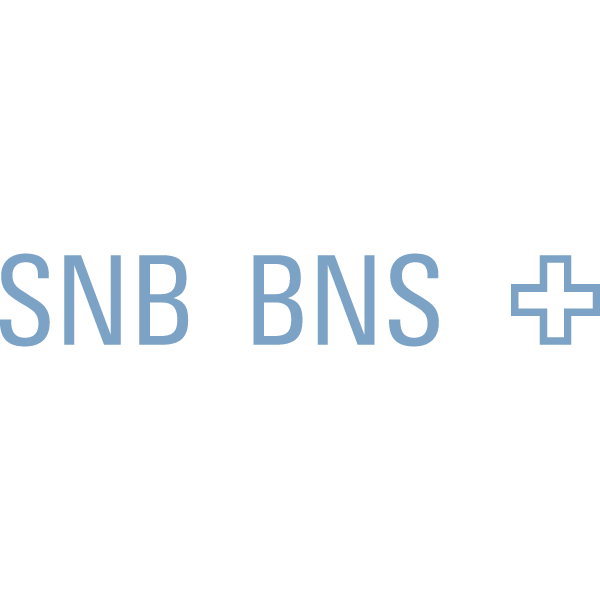name and background<
span style="font-family: sans-serif; color: black" > full name: Schweizerische National bank (French: Banque nationale suisse, Italian: Banca nazionale svizzera, Romansh: Banca naziunala svizra)
was founded on June 20, 1907, under the Swiss National Bank Act of January 16, 1906 (National Bank Act) was established.
Headquarters location: Bern and Zurich, Switzerland (dual headquarters)
Shareholder background: SNB is a joint-stock company (Aktiengesellschaft) under special regulations, and its shares are listed on the Swiss Stock Exchange (SIX) under the ticker symbol SNBN.SW. Approximately 55% of the shares are held by the Swiss cantons, cantonal banks and other public institutions, while the remaining approximately 45% are held by private investors, including national and foreign individuals and institutions. The federal government does not directly hold shares. Dividends on SNBs are subject to the National Bank Act up to a maximum of 6% of the share capital to ensure that profits are mainly returned to the public sector.
service scope
SNB serves primarily in Switzerland and plays a role in the international financial system through monetary policy and foreign exchange interventions. As a central bank, its functions cover the whole country and have influence in the global financial markets, for example through participation in the activities of the Bank for International Settlements (BIS).
SNB has dual headquarters in Bern and Zurich and six representative offices in Basel, Geneva, Lausanne, Lugano, Lucerne and St. Gallen. In addition, SNB has a branch in Singapore, which is mainly responsible for asset management and regional economic monitoring. SNB also commissions agencies operated by 13 state banks to handle cash distributions and collections.
main functions
interbank payment services: the provision of interbank cashless payment settlement services through the Swiss Interbank Clearing System (SIC) to manage the bank's demand deposit accounts.
Cash Management: Exclusive issuance of Swiss franc banknotes and coins, and commissioning of cantonal banking agencies for the distribution and management of cash circulation.
Foreign exchange reserve management: Manages Switzerland's foreign exchange reserves, maintains the stability of the Swiss franc through foreign exchange market interventions, and implements a negative interest rate policy if necessary.
financial stability: supervising systemically important financial market infrastructures (e.g., payment and securities settlement systems), analysing financial system risks, and providing liquidity support as lender of last resort when necessary, For example, in 2023, 50 billion Swiss franc loans and 100 billion Swiss francs of liquidity support for the Credit Suisse crisis will be provided.
Economic Research: Supporting government, business, and academia through data collection and analysis in publishing economic reports.
Monetary policy: Formulating and implementing monetary policy to ensure price stability while taking into account economic development, with the goal of keeping inflation within 0-2%.
SNB also operates the Gerzensee Research Center, founded in 1986 to provide global economic research and central bank training courses.
regulatory and compliance<
span style="font-family: sans-serif; color: black" > SNBs are subject to the National Banking Act (NBA) and enjoy a high degree of independence and are prohibited from receiving instructions from the federal government, parliament or other agencies. Its operations are supervised by the Swiss Federal Council, whose annual financial reports are subject to the approval of the Federal Council. The SNB works with the Swiss Financial Market Supervisory Authority (FINMA) to maintain the stability of the financial system, with FINMA responsible for specific banking supervision, and SNB focusing on macro-financial stability.
SNB is known for its robustness and independence, with no significant compliance issues. It cooperates with FINMA and other international bodies on anti-money laundering (AML) and counter-terrorism financing (CFT) to ensure transparency in the financial system.
digital service experience<
span style="font-family: sans-serif; color: black">Technological innovation:
Central Bank Digital Currency (CBDC): SNB is exploring wholesale CBDCs (for financial institutions) and launching a pilot project in 2023 to test the use of the digital Swiss franc in financial transactions.
data analysis: uses big data and AI technology to conduct economic forecasting and risk analysis, but does not provide AI customer service or robo-advisory services.
Open Banking: SNB supports the modernization of financial market infrastructure, but does not directly provide open banking APIs, and relies more on commercial banks for implementation.
> payment system: SNB operates the Swiss Interbank Clearing System (SIC), which supports real-time interbank payment and settlement, which is safe and efficient.
its digital services focus on financial infrastructure and macroeconomic management, rather than retail customer experience.
customer service
SNB's customer service is mainly for financial institutions, state banks and government departments:
online platform: The official website provides economic reports, statistics and policy information in German, French, Italian and English, with a simple interface.
Field support: support for the regional economy through 6 representative offices and 13 agencies, explaining policies and collecting local economic data.
> telephone and email: provide professional consultation hotline and email, Monetary policy, cash management and economic data inquiries are handled on the official website (www.snb.ch).
security measures<
spanstyle="font-family: sans-serif; color: black"> security measures of the SNB are designed to protect the financial system and currency issuance:
Anti-Money Laundering and Counter-Terrorism Financing: Cooperate with FINMA and international organizations to monitor suspicious transactions and ensure compliance with the financial system.
Physical security: The cash processing center and headquarters are equipped with advanced security systems to prevent counterfeit currency and theft.
SNB ensures security and transparency by maintaining a balance between Swiss banking secrecy traditions and international compliance requirements.
>Cybersecurity: Protecting payment systems (e.g., SIC) and data transmissions with advanced encryption, working with international agencies to combat cyber threats.
featured services and differentiation
SNB is unique in its position as a public function of the central bank and as a pillar of the Swiss financial system:
Foreign exchange reserves management: SNB has one of the largest foreign exchange reserves in the world, which are used to stabilize the exchange rate and protect the competitiveness of Swiss exports.
Financial stability support: Demonstrate strong intervention capabilities in crises, such as coordinating the Credit Suisse-UBS merger in 2023 to avoid systemic risks.
Gerzensee Research Center: To provide a high-end training and research platform for central banks and economists around the world, and to enhance the international influence of SNBs.
Historical legacy: SNB inherits Switzerland's tradition as a global financial safe haven, and its robustness and neutrality have made it well-known in the international financial community.
> Monetary policy independence: SNBs enjoy constitutionally guaranteed independence from political interference and are flexible in responding to economic challenges, such as maintaining the stability of the Swiss franc through negative interest rates and foreign exchange intervention.
summary
Swiss National Bank, as the central bank of Switzerland, occupies an important position in the global financial system with its independence, soundness and international influence. Although it does not provide traditional retail banking services, its contribution to monetary policy, foreign exchange management and financial stability is irreplaceable. SNB supports the Swiss economy with an efficient digital infrastructure and strong foreign exchange reserves, while promoting global financial development through economic research and international cooperation. For users who need to understand the Swiss economy or monetary policy, the SNB's open data and reports are an indispensable resource.










